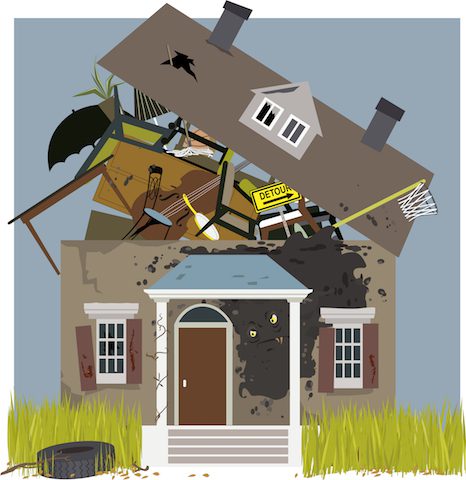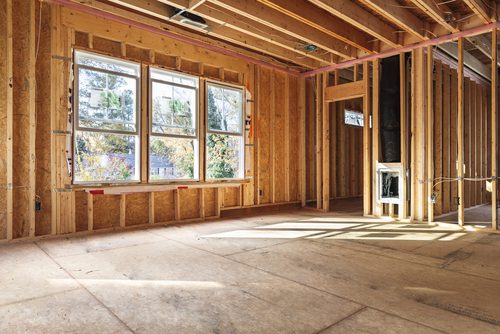The New Investor
The art of negotiations demand a specific set of skills which can be acquired through experience and education. Anyone can be taught effective negotiation strategies but it takes practice to really hone in on your strengths and avoid your weaknesses. Many people believe all you have to do is set a price and stick to it.
This line of thinking will cost you deals and will probably give you a negative reputation in the industry because true negotiating uses creativity to create a win, win situation for everyone when possible. Powerful negotiators are creative, firm, assertive, and aggressive.
They also seek to make the deal work for everyone where possible. The number one rule when negotiating a Las Vegas real estate deal is to check your emotions at the door. Beginning investors open themselves up for abuse when they expose their emotions during the deal-making process.
For example, you may have found the perfect property and now you want to purchase it before someone else comes along. Your body language and verbal cues could tell the seller just how interested you are in their property.
This gives the seller the ability to ask for a higher price from you and more than likely you’ll accept it because emotions are extremely difficult to change. The seller may pick up on this and so you could end up investing much more than you initially decided.
Others have read: What happens to Rents during a Correcting Real Estate Market?
A COMPLETE BEGINNER’S GUIDE
A poor negotiator can lose everything from a bad deal if emotions are involved.
To avoid the emotional trap, you should walk into a piece of property without expectations and with the mindset of a business person. Search through every major system of the house to find deficiencies because this will keep you focused on the deal and you’ll be less likely to become attached.
Another unspoken rule in negotiating is homework. Never go into a Real Estate deal with a little information and hunch.
It’s important for you to find out about the good, bad and ugly as it relates to the property you’re considering. The more information you have, the more ammunition you’ll have to negotiate a great deal.
Knowing the property tax information, issues with title, what the current owner paid for the property, and even how much the current owner may owe on their mortgage is all great information to have in your arsenal. Also, it’s important to find out what the neighborhood is like during the day and at night.
Some police departments may even give you information about specific types of crimes that have been committed in the neighborhood over a period of time. Find out the last time the water heater was changed, the furnace was last replaced, the roof was re-shingled, and if all major systems meet your local housing code statutes.
You also want to obtain a list of comparable sold properties in the area from a Realtor because this will give you an idea of the true value of the property you’re considering. All of this information can be useful when you discussing purchasing.
Now, you’re ready to make an offer. Your first offer should be considerably lower than the asking price. Some investors like to use an offer so low that they insult the seller. This isn’t necessary and could really hurt your business in the long run, but at the same time you don’t want to offer a price that the seller accepts right away.
Every deal is different and if you’ve done your homework, then coming up with a number that works for your business needs will be fairly easy. Selling that number to the seller can be the hard part and that’s why this process is an art that takes years to develop and master.
When describing all of the horrible things wrong with the property to the seller, make sure you are respectful but firm. Also, you want to include a few of the minor qualities you’re interested in because if you divulge the major qualities you like, it will be used against you. You should make the offer and then back that number up with issues you’ll have to address once you take possession.
You may or may not actually address any of the issues you find, but it’s difficult to make that assumption until you take possession. It’s always best to err on the side of caution and include it in your offer justification. Learning about the owner’s situation can help you as well. For instance, if the seller is going through a divorce or some other hardship, you can make your case to purchase the property and take it off their hands.
Many people are more than willing to work with you if you’re respectful and helpful. If you go into the deal expecting to take advantage of people, then you can expect a short career in this business.
Now that you’ve armed yourself with some basic information about Real Estate negotiations, it’s time to practice. Using these simple and effective techniques, you can start to learn the art of negotiating.
This craft takes many years and lots of deals to master so don’t feel bad if things are a little rough in the beginning. Just make sure you keep the basics in mind, keep practicing and you’ll be well on your way to becoming a master of negotiating.
Las Vegas Real Estate Market Report
Is Real Estate Investing Right For You?

Real estate investing is often an excellent money making opportunity for many people. However, this doesn’t mean that it is right for everyone. There are numerous considerations in determining whether this kind of investment is an ideal vehicle for your money. For instance, while the risk in this investment is much lower as compared to that associated with other investments, it is not entirely risk-free. You, therefore, need to be keen in order to be successful. Below are 7 ways to determine whether real estate is the right investment for you.
Check out these Amazing Las Vegas Investment Opportunities
1. Can you efficiently manage your personal resources?
If you can hardly manage your personal resources and you have substantial amounts of short term debts, you are likely to fail in real estate investing. You will, therefore, need to address such issues before investing in real estate. This is because unlike other investments, real estate is illiquid; once you buy it, the hold on time on your newly acquired property may be longer than expected, thus you may be potentially exposed to unforeseen expenses for much longer. The inability to plan your finances in anticipation of expenses may easily convert your real estate investment into a financial nightmare.
2. Are you a team player?
Real estate investing entails partnering with others and acknowledging that your partners may know more than you. You are likely to encounter brokers, property managers, mortgage brokers and contractors among other people. In case you are a control freak who prefers to work alone, real estate investing may not be right for you.
3. Do you have the necessary tools?
You need to have an in depth understanding of this kind of investment before embarking on it. For instance, you have to decide whether you will be investing for cash flow or speculating for appreciation. You also need to acquire the necessary analytical tools to help you work up a pro-forma for the property you will be buying.
4. Are you patient and resilient?
Contrary to the prevailing misconception that real estate produces instant cash, real estate investing requires one to understand that wealth-building occurs over a number of years, and you will have to survive through your initial couple of properties to build any significant wealth. Your first few properties will merely present an opportunity for learning; as you move beyond the initial learning stage, you will be able to create wealth.
5. Are you a problem solver?
The success in real estate investing will also depend on how you react to unpleasant business news. For instance, if your general reaction is often anger that dissipates into a sense of helplessness, real estate investing may not be for you. On the other hand, if you are a problem solver, you will have a successful business in real estate investing.
6. Are you sufficiently informed?
Real estate investing requires you to be prepared to educate yourself on the various financing options, about the local market and the prevailing prices and rents. You may also access invaluable information by finding local Cash flow or real estate investing clubs where like minded people assemble.
7. Are you emotionally detached?
Some people get emotionally attached to properties and attempt to spend more money than necessary in creating a property that they would want, rather than creating a property that generates profit. You, therefore, need to be detached emotionally while investing time and effort to find the right investment and realize your profits.
There is more to real estate investing than what meets the eye. It is, therefore, essential that you be fully aware of what you stand to lose, and the amount of work involved before getting started. Once you have sufficiently done your homework, and you feel secure in your investment, you are more likely to make an appropriate decision.
Don’t be Fooled
Have you ever heard of a real estate deal that sounds too good to be true? It probably is. However, everyday individuals buy into deals that end up losing money. Real estate isn’t an investment a person buys into and then moves on from quickly. Real estate values rarely multiply quickly. In some locations, there are restrictions on the amount of time between purchasing a property and re-selling it. In the meantime, there are bills to pay. Fast cash is unlikely where real estate investing is concerned.
If you want to come out ahead with a real estate investment, educate yourself from the get-go.
What You See Isn’t Always What You Get.

There’s a reason builders invest in slick advertising and fancy showrooms. Their marketing is designed to entice buyers into an imaginary life. Once the fancy sales offices are gone, and the colorful flags are no longer flying, the scene will change dramatically. If not well informed, the fantasy life you first imagined may not end up being so fantastic after all. You may be sorely disappointed when your investment fails to look like the photo in the brochure that had you captivated.
Many have come across the smoke and mirrors that abound in real estate deals done for properties in remote areas. Choosing a property over the internet without seeing it probably isn’t a good idea no matter how much you feel you trust the realtor involved. It’s more likely worth the cost of a trip to check it out.
Vacationers caught up in the mood of their fantasy vacation need to be leery of falling for seemingly fantastic real estate offers before looking into the details thoroughly. An unsuspecting buyer may simply be enjoying a cocktail poolside when approached by a savvy salesperson who urges them to invest in a no fail deal. Tourists can become prey to con artists who see they are naïve about the area and the ways of doing business there.
Some individuals interested in investing in real estate may have read books or attended seminars that have taught that money can be multiplied quickly through purchasing properties in key locations. Some authors or speakers will say all a person needs to do is follow a few easy steps as outlined in their program. It’s tempting to believe people who tell you what you want to hear.
Do Due Diligence
Before investing in real estate, why not decide how you want your money to work, and then invest in a plan that makes it happen. If the numbers in your analysis don’t add up, walk away. You can always try again at another time with another location.
Due diligence is the process of fact finding that involves uncovering background information on a property as well as running numbers that take future costs into account. If your investment involves private home ownership, your due diligence will need to include associated taxes, utility bills and other costs of home ownerships over the long term. This goes beyond the initial purchase price, lending, and legal fees.
If your plan is to invest in a building yet to be built, there may be a few legal hoops to jump through, not only initially, but down the road. If possible, consult with others who’ve dealt with the builder in question or who have similar investments.
If your investment requires you become a landlord, ensure you’ll be comfortable vetting out candidates for tenancy. You’ll need to become aware of your local landlord and tenant act and terms of contracts. Before becoming a landlord, consider how you’ll feel receiving phone calls at various times of the day or night when something goes awry at your property.
A wise investor does his due diligence as well as making financial predictions of profit, knowing when to step away from something that will result in a loss or that he’ll be unable to maintain.
Check out the Cheapest Houses in Las Vegas
New Builds

It makes sense to only believe half of what other investors brag about, and to be wise enough to look through the smoke and mirrors produced by sales reps. When it comes to investing in new builds, there’s a few things to consider.
First, be aware that there’s a reason builders seek early investors. They may promise deals for investing early, but they do so because they need your money for their project to go ahead. The project could end up with a lien against it, a union worker’s strike, an inability to obtain building materials, or another unusual circumstance resulting in project delays. A delay will tie up your money, leaving you with nothing to show for it until the project is complete, which may be many months beyond the promised date.
Another thing to be aware of is that a model home you may fall in love with will likely include upgrades that are beyond the listed base price. If you’re thinking of buying new, consider the upgrades you’re interested in, and add the cost into your planning. Upgrades might include differences in trims, flooring, lighting, cabinetry, and backsplashes. Most have hefty prices.
Ways to Educate Yourself
Wise investors are learners and do what it takes to be well prepared when it comes to investing their money. They may have taken courses or read books, but many have learned on the go. They’ve taken risks, investigated various conditions for themselves, and either decided for or against making certain investments.
You too can become proficient in real estate investing. Gather the facts, and consult with professionals who have expertise in the type of investment you’re interested in pursuing. Don’t be fooled by any hype you may come across. Look beyond the shiny finishes of model suites. Read the fine print of any document you sign.
If you plan on investing in real estate properties, prepare to have your money invested for the long haul for the greatest return on your investment.
Here are some great buys when considering making a Las Vegas Real Estate Investment
[table id=24 /]
Just listed in the Homes For Sale Database.
Call 702.604.7739 to Buy or Sell Real Estate in Las Vegas, Henderson, North Las Vegas, or Reno, Nevada. We also have real estate parters around the globe! Let us know what you need and where, and we can make the connection.
Wondering how much Your Home Value is? Use our 15 Second House Value Estimator!
